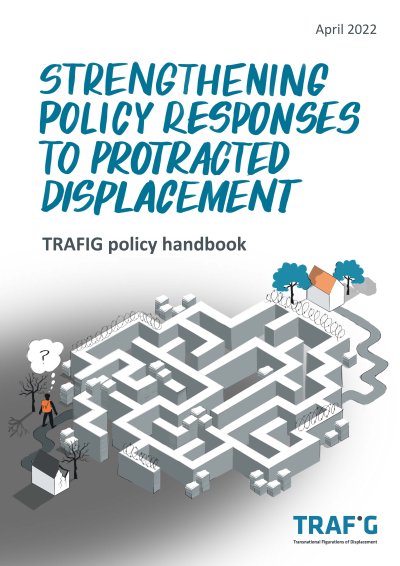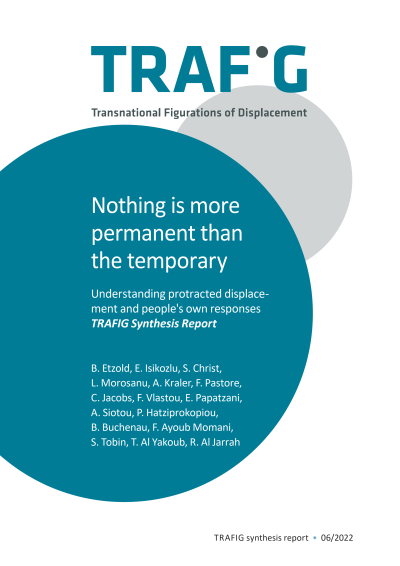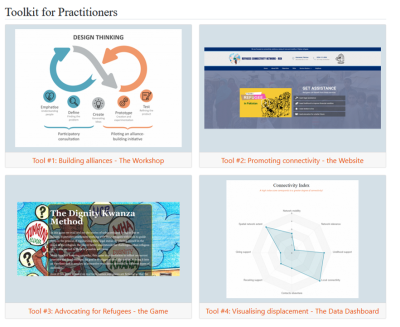Key Findings
For the past three years, we investigated long-lasting displacement situations in Africa, Asia and Europe and analysed options to improve displaced peoples’ lives by enhancing their chances of building sustainable futures. We undertook more than 2,700 interviews with displaced people, policymakers and practitioners in 11 countries.
Our study focussed on the reasons why people end up in protracted displacement situations, what coping strategies they use, and what role networks and mobility play in this regard. We thereby identifyed possible courses of action for policymakers and solutions that are better tailored to the needs and capacities of displaced persons.
In three final publications we will share the key findings from our project:
- the policy handbook presents 10 key takeaways from our work and provides recommendations for strengthing policy responses to protracted displacement,
- the synthesis report compares findings from empirical research on protractedly displaced people's livelihoods, networks and mobility across our countries of study,
- the toolkit brings together practical tools for practitioners involved in funding, designing, and implementing programs for displaced people.
The three final products will be successively published here until June 2022.
TRAFIG Policy Handbook
The TRAFIG handbook shares 10 takeaways for strengthening policy responses to protracted displacement that have emerged from our empirical research and policy recommendations, as well as a non-exhaustive list of promising practices for inspiration. These 10 points centre on the TRAFIG project goal of identifying solutions that are better tailored to the needs and capacities of displaced persons. Read more
TRAFIG Synthesis report
'Nothing is more permanent than the temporary' – Understanding protracted displacement and people's own responses
Final report sums up findings of 3 1/2 years of TRAFIG research.
Across the world, 16 million refugees and an unknown number of internally displaced persons (IDPs) experience long-lasting conditions of economic precarity, marginalization, rightlessness and future uncertainty. They live under conditions of protracted displacement. Policy solutions often fail to recognise displaced people’s needs and limit rather than widen the range of available solutions.
This report brings together the central findings of the TRAFIG project’s empirical study in the Democratic Republic of... Read more
Toolkit for Practitioners: Building Webs of Connections
This toolkit brings together practical outputs on solutions to protracted displacement.
Practitioners can promote or support displaced people's connectivity. Helping to build a web of connections allows displaced people to move ahead in life and to belong to others.
The toolkit entails 4 examples from our work:
Tool #1: Building alliances - The Workshop
Tool #2: Promoting connectivity - the Website
Tool #3: Advocating for Refugees - the Game
Tool #4: Visualising displacement - The Data Dashboard
Learn more about these tools, how we developed them and used them in our work. Read more



